Coventry Corsairs are a welcome addition to the IGR league and the LGBT society
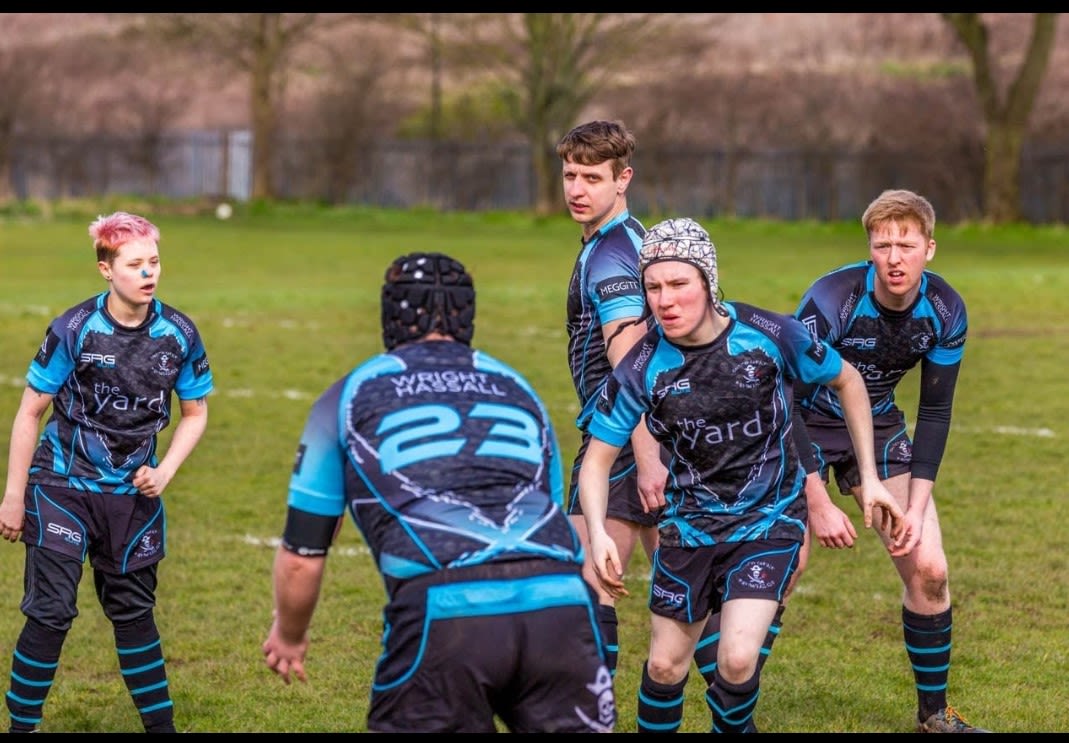
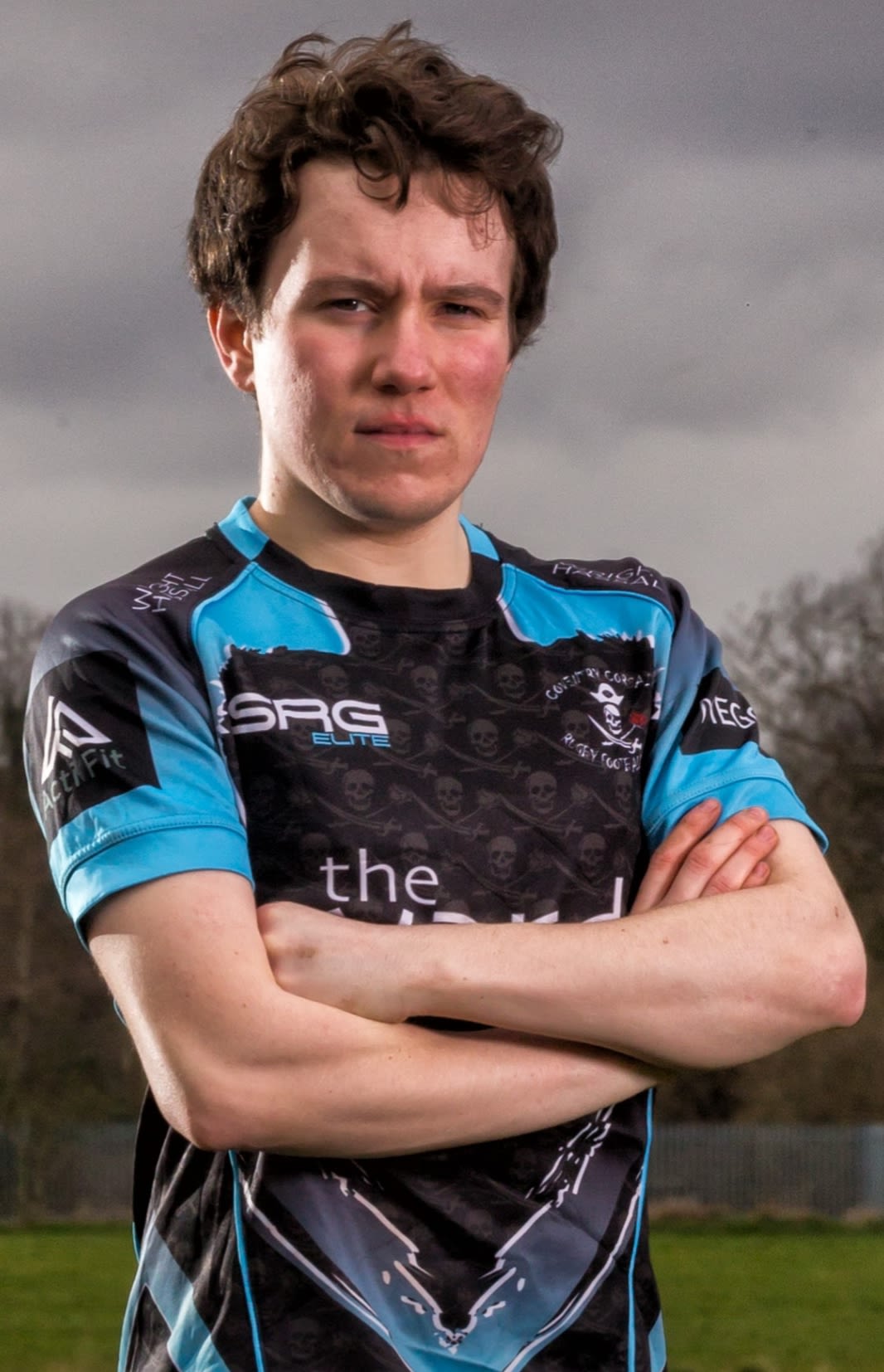
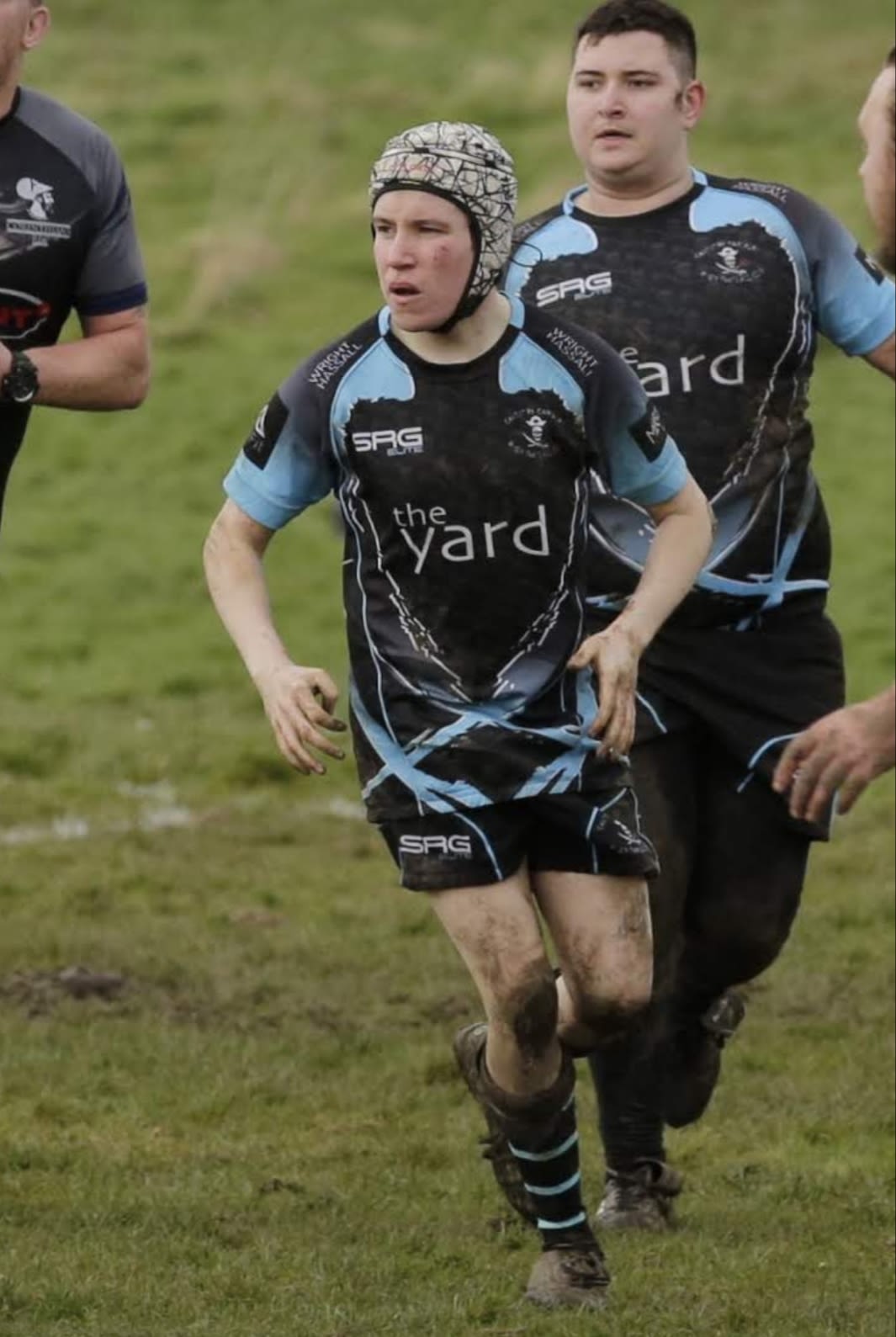
“I’ve felt like I’ve had to do lots of pretending up until the Corsairs!” - Nathan Sands, Coventry Corsairs
It was just another ordinary day in Coventry, Wednesday 19th June to be exact. People were going about their business in this city brimming full of history which is epitomised by its famous Cathedral. However, many would have been blissfully unaware that in the Black Pad area a different kind of history was being made that day. Coventry had just become the 100th city to accommodate an all-inclusive rugby team; the Coventry Corsairs.
Named the City of Culture for 2021, Coventry is commended for its accepting and diverse community. Like many inner-city areas, Coventry has adopted an open-minded approach to accommodate different religions, backgrounds and cultures and in particular, has seen the LGBT community thrive. Gay bars, clubs, charities and sports teams now fill the city and the Corsairs were just a welcome addition to the ever-growing inclusive society.
The city isn’t new to the rugby scene, with over half a dozen union teams using Coventry as their base, including Premiership team Wasps. However, the Corsairs are the first of its kind and are now celebrating the first 10 months of their life at their shared ground with Coventrians RFC, whose history is more extensive dating back to the first World War. Despite its short existence the impact it’s had on its members is huge, including 20-year-old Nathan Sands.
Sands is one for defying stereotypes; he lives and works independently despite living with autism and being told he wouldn’t function without support growing up. He completed a degree at Coventry University but since leaving education has struggled socially and only has a few connections in the area, finding things even more difficult because of his condition. Keen to shift the extra weight he had gained during uni and eager to make more friends, the Corsairs advert on the Coventry Council website appealed to him. He was unaware of the inclusive aspects to the club until a month in where he learnt about their affiliation with International Gay Rugby (IGR) and initiatives such as Touch My Brum - the world’s largest inclusive touch rugby tournament. On the pitch, the history graduate often finds himself one of the smallest, only standing at 5ft 6” tall he does not possess the typical stature of a ‘bulky’ rugby player. However, he has not let his appearance or the fact he is on the spectrum hold him back and has quickly seen and felt the benefits of playing inclusive rugby on both his physical and mental wellbeing.
“Like many of us on the team, the sport wasn't my first choice growing up," he says. "At secondary school, I had a couple of rugby lessons but I think the way it was taught and presented to me just didn't make it very appealing at the time but the Corsairs are a great bunch of people. I think it's just wonderful, there's no other word to describe it. I wish I had the people I have around me today when I was younger too. The number of people you can talk to for advice is great and you can all head down to the pub together after which also a bonus.
“I think for a lot of people the best part can be the social side but for me, there are so many great aspects. However, I think the most notable memory so far has to be our first match against the Nottingham Hurricanes. Walking back into the changing room while singing our heart out to "Sweet Caroline" after our first victory will always be a happy memory in my eyes. Even just my two best mates turning up and watching me play, moved me. They didn't know anything about the sport but by them just being there I felt something at that moment that you could never repeat ever again."
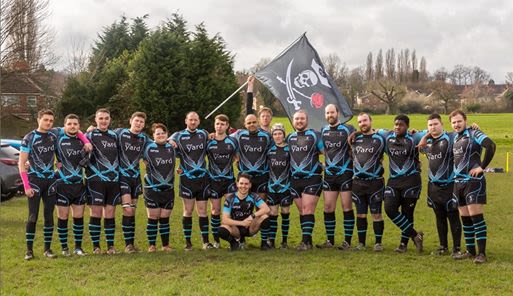
The Corsairs pride themselves in embracing all genders, sexualities and identities regardless of rugby playing experience. They have attracted people from all walks of life and Sands is one of the youngest members of the team. 15 years his senior is his team-mate and someone he now classes as a lifelong friend, Michael Wilkes-Spellman. The 35-year-old works as a Dementia and Mental Wellbeing Lead and is a father to a young boy. It was only when he took his son to rugby training that his interest was sparked in the game but Wilkes-Spellman had never played any team sports before the Corsairs. The most vibrant and creative out of the men is 33-year-old Daniel James who has recently taken time out from his postdoc career to write for a journal. James' is also the most experienced rugby player, playing for several teams since he started at aged eight, including making the South West Leicestershire squad. However, he says he’s ‘much happier in an explicitly inclusive club.’ Despite the age differences, varying levels of experience and all leading very different off-field careers, the men are all united by playing a sport with like-minded people.
It’s amazing! My first game was quite emotional and I had a little cry in the car on the way home. I gave up rugby before when I started not to fit in but the Corsairs are so welcoming, and straightaway it was so motivational to line-up with them all in harmony," James says with pride in his voice and most definitely a puffed chest. "Playing with the Corsairs is full of amazing stuff. We have everything from players who learnt to tackle the week before playing a full 80-minutes the next week, through to ball-carriers who may look small but are mighty enough to take three defenders with them. Personally, it felt massive to connect two bits of my life for the first time... held together with pink wrapping tape," he laughs.
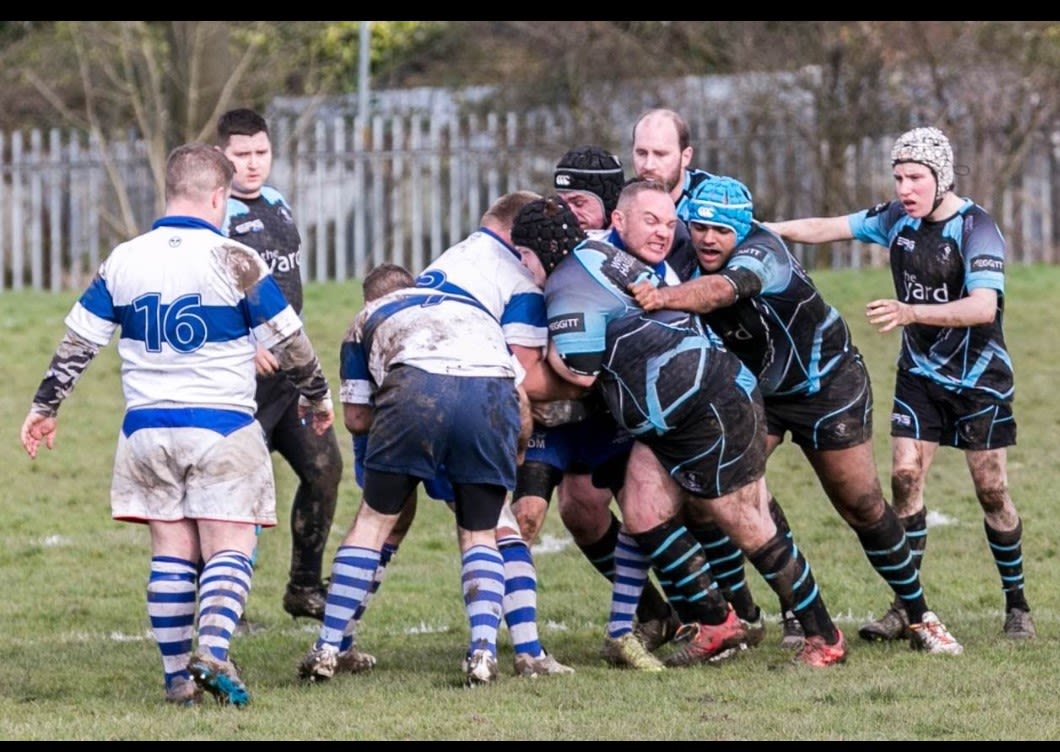
The IGR operates internationally but the UK boasts 30 inclusive teams from the Aberdeen Taexali’s to the Cardiff Lions, the Emerald Warriors in Dublin to the Coventry Corsairs. However, the Corsairs are quite new to the scene, coming over twenty years after the first registered gay team, the Kings Cross Steelers (London) in 1995.
“Our city didn't have its first inclusive rugby team until 2019, which seems odd but it generally needs a few people coming together and saying ‘shall we do this?’ for it to work," says Wilkes-Spellman.
“I googled gay rugby a while ago, but Northampton and Birmingham were too far to travel and I ended up playing football instead which has very different rules on contact, apparently," James lets a breathy laugh come through his nose. "Coventry popped up as a new team when I googled it in February and here I am."
If you want to find out more about inclusive rugby or find a team near you that operates in an IGR league, visit the IGR website: https://igrugby.org/
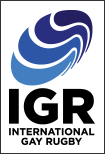
It has been a slow process for inclusive teams to infiltrate across the UK and for the LGBT community to be accepted into the sporting world. However, regardless of the location or the team, the goals are very much the same: to ‘welcome all prospective members regardless of sexual orientation, gender identity, age or physical fitness levels' to the game of rugby as professed on the Corsairs website. The effect these teams have on its players is a widespread 'feel-good' feeling as Michael Rowlands, an Officer for the Police and Crime Commissions in Merseyside plays for the Liverpool Tritons and echoes the comments of the Corsairs players.
“I have so many wonderful memories of playing the last 12 years,” he says. “I would say meeting teams from across the country and around the world who are also inclusive and building friendships is one of the biggest benefits. Some of my closest friends are those who I have met through playing rugby.
“I found a level of camaraderie I had not even realised I was missing; I have found that everyone is there for the sport and to push the team further. The social aspect is just a bonus on top of that.”
Over 120 miles separates the Coventry Corsairs and the Liverpool Tritons, who have been operating as a fully inclusive club since 2016. Like Coventry, the scouse city was awarded the City of Culture back in 2008 highlighting its inclusive nature, amongst other things like its urban regeneration, heritage and arts. Unfortunately, there is more that connects the two cities and teams than just their shared passion of culture and inclusivity; all of the players have also been subject to some form of homophobic abuse in their home cities. It ranges from backhanded comments and indirect discrimination to threats and abuse with James and Rowlands, unfortunately, experiencing the worst of the treatment.
“In sport, I'd say I've not directly been discriminated against. I came out to my canoe club (which I've since left) and they were sort of weird about it – not negatively, just childish.
"Out of sport: yes, although a lot of the contexts I'm in are supportive. The one time I've felt genuinely threatened was in the sauna at my gym where I got cornered by three homophobic traveller guys. I only mention that they were travellers because I think it conveys a bit of how up-front they were about their prejudices and I imagine there would be more of a 'religious' background to it for them," James says sheepishly as he recollects the ordeal, far from the flamboyant young man at the start of the interview.
“I started playing for a local side when I was 18 but found the banter a bit too near the knuckle in terms of its homophobia,” says Rowlands. “Looking back, I don’t think they were being deliberate and probably would have accepted me for who I was. But, being young and in the closet at the time, it did make me feel uncomfortable.
“I have also been called a ‘faggot’ a few times on the pitch when playing local sides before joining an inclusive team. Even a few sly digs in the ruck have come my way. I have also suffered verbal abuse when I was younger and I was assaulted on the street for being gay.”
Homophobia still very clearly exists but it appears to be more of a societal issue rather than one that has been provoked by the introduction of inclusive rugby. These men have all endured abuse as a result of their sexuality but see rugby as their escape and a place for expression without scrutiny from closed-minded individuals. Receiving such animosity would be enough to put many people off trying new experiences, like playing rugby, but the men see a bright future for their game and Sands is particularly excited about where things may go.
“This past year alone has been amazing and rugby is making waves of progress in the sporting and LGBT world. When we look at the Premiership and the number of teams that wore Rainbow Laces during their games and even Harlequins hosting the inaugural LGBTQ+ Pride match earlier this year, it's amazing. I think in my lifetime and in our generation, we are going to see a lot of things both positive and some negative. Hopefully, we are going to see more LGBTQ+ players across all sports, not just in rugby and I think we are going to see more clubs label themselves as inclusive.
“However this is all down to time and educating. It all starts at home, having these conversations and breaking down stereotypes.”
Things are far from perfect and the players don't pretend they are. However, one thing that seems to be a conclusive belief is that their sport is far more accommodating to minorities than other leading UK sports.
“I think rugby has come a long way, as inclusive rugby has grown exponentially across the UK since I started in 2008. Although more work can be done, rugby takes a strong stance against any form of prejudice which other sports, such as football, could take lessons from,” Rowland concludes.
What game would you class as more inclusive for the LGBTQ+ community?
— Amy Flynn (@AmySportsJourno) April 26, 2020
The four men from the inclusive teams in Coventry and Liverpool plus the IGR teams from across the globe prove that rugby is a united family, with an accepting nature. All of the men show pride for the game they play, their orientation and who they are as a person. Their sexuality doesn't define them but the rugby shirt they put on and the teams they choose to run out for defines their confidence and ability to stand loud and proud, in a society that is slower at accepting that any love is love.
